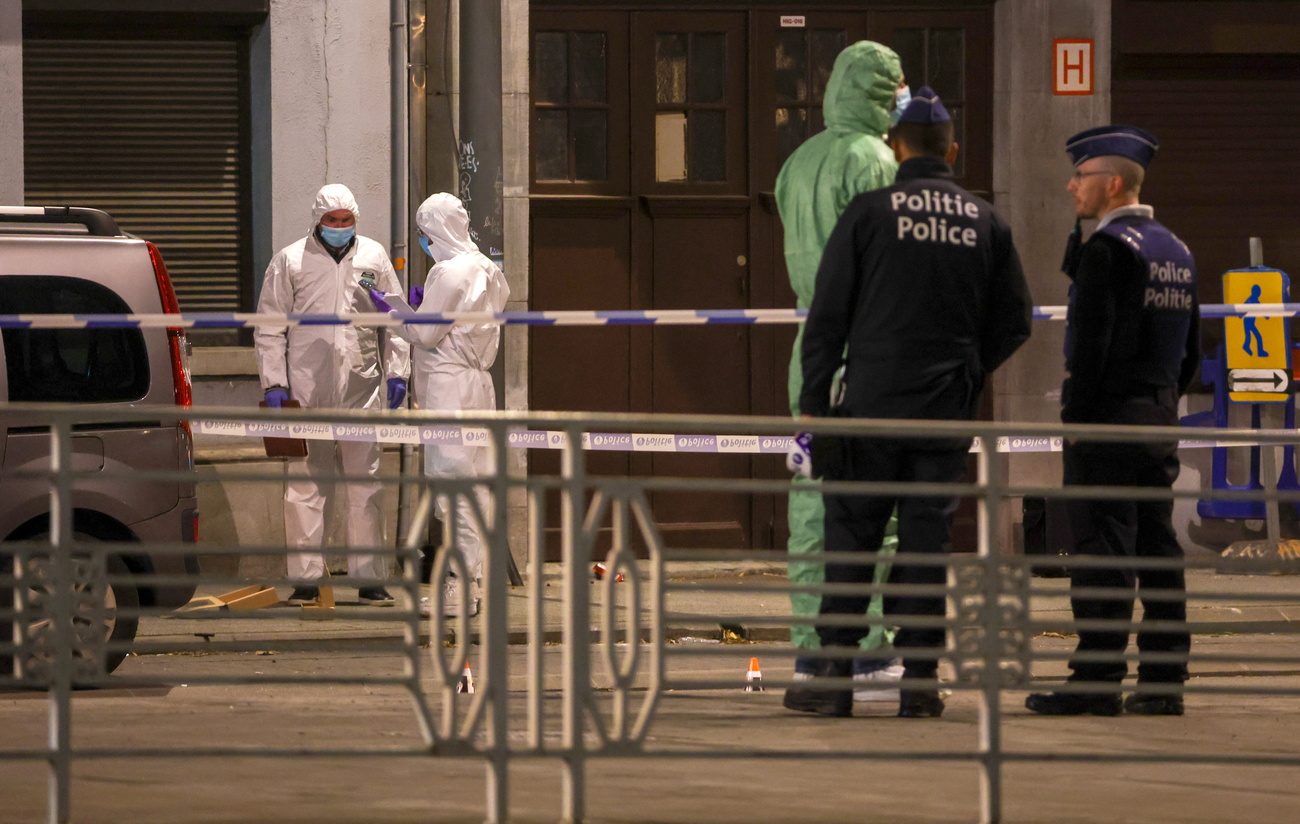
Swiss permanent residence holder among victims of Brussels attack

Two Swedish nationals were killed on Monday evening in Brussels by an armed man. One of the victims also held a Swiss residence permit.
The suspect was shot dead by police on Tuesday morning in the Belgian capital.
The events occurred on Boulevard d’Ypres, near Place Sainctelette, in the centre of Brussels. Police were alerted shortly after 7pm and installed a security perimeter.
A video message was posted on social networks by a man “presenting himself as the attacker and saying he was inspired by the Islamic State” (IS), said a spokesperson for the Belgian federal prosecutor’s office.
According to several Belgian media, the suspect is a 45-year-old man of Tunisian origin who lives in the Brussels commune of Schaerbeek.
The terrorist threat level was raised to four, considered “very serious” (maximum level) on Monday evening in the Brussels region.
Dual national
According to several media, the two victims were Swedish nationals. The Belgian federal prosecutor’s office said that one also carried a Swiss residence permit.
The attack took place before a Euro 2024 football qualifying match between Belgium and Sweden which was being held in Brussels.
The match was interrupted at half-time “following consultations with both teams and local police authorities,” the Union of European Football Associations (UEFA) announced. According to the French-speaking channel RTBF, the Swedish players did not wish to resume the game after the break. Journalists present at the King Baudoin stadium indicated that spectators had been asked to remain in the enclosure.
The federal prosecutor’s office in charge of terrorism cases, has taken charge of the investigation.
Correction: A previous version of this article indicated that one of the victims was a Swiss-Swedish dual national. The victim was not a Swiss passport holder but had a C residence permit from Switzerland.
This news story has been written and carefully fact-checked by an external editorial team. At SWI swissinfo.ch we select the most relevant news for an international audience and use automatic translation tools such as DeepL to translate it into English. Providing you with automatically translated news gives us the time to write more in-depth articles. You can find them here.
If you want to know more about how we work, have a look here, and if you have feedback on this news story please write to english@swissinfo.ch.

In compliance with the JTI standards
More: SWI swissinfo.ch certified by the Journalism Trust Initiative






























You can find an overview of ongoing debates with our journalists here . Please join us!
If you want to start a conversation about a topic raised in this article or want to report factual errors, email us at english@swissinfo.ch.